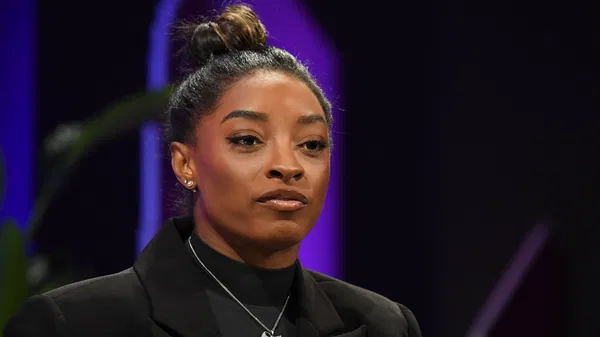Living life in the spotlight may appear glamorous, but for Simone Biles, it has proven to be a double-edged sword. Constant recognition from strangers means she rarely has the chance to blend into the crowd, leaving her with the feeling of always being “on” and pressured to meet others’ expectations. This lack of privacy can become exhausting, as it deprives her of moments to enjoy life without interruption. Over time, the burden of public scrutiny can take a toll on mental health, making her long for the sense of normality that seems elusive in her highly visible lifestyle.
Since her Olympic debut in 2016, Simone Biles has captured the world’s attention. At just 19 years old, she led the U.S. gymnastics team to a gold medal and won three individual golds in the all-around, vault, and floor finals. Her success quickly placed her among the ranks of other sports legends like LeBron James and Serena Williams. But, as the saying goes, “Everything comes at a cost,” and Biles has been open about how fame has impacted her life.

In a recent interview, Biles revealed the challenges that come with fame. After her comeback at the 2024 Paris Olympics, where she secured four medals—three gold and one silver—she broke Shannon Miller’s record for the most Olympic medals won by a U.S. gymnast. Despite these accomplishments, Biles has spoken about how fame affects her. She noted, “Sometimes it takes a little more security or stuff, but I don’t let it hinder anything, which is really good, huh? I’ve put gymnastics on the map globally, so it’s crazy to me.”
Biles also reflected on the downside of her celebrity, stating, “Sometimes, it’s scary because everybody knows me, and I don’t know everybody.” She experienced this firsthand at the Tokyo 2020 Olympics, when she withdrew from some events to focus on her mental health. Although she received widespread support, some criticized her as a “quitter” for prioritizing her well-being over competition.
Additionally, Biles has been compared to other sports icons like Serena Williams and LeBron James. While she finds these comparisons flattering, she admits it feels surreal to be mentioned in the same breath as athletes who have made significant contributions to their respective sports. Biles acknowledges the weight of this recognition, but her success in gymnastics has certainly earned her a place among these greats.
Biles also reminisced about her childhood, where she would flip off swings and jump over railings in her home, foreshadowing the incredible talent that would eventually lead her to become the greatest gymnast of all time. Despite her meteoric rise, she has managed to use her platform to address issues beyond sports, particularly mental health.
At the Tokyo Olympics, Biles made a bold decision to step back from competition at the peak of her career. Concerned about her mental well-being, she prioritized her health over winning medals. This decision, while shocking to many, sparked an important conversation about the mental health challenges athletes face. Her withdrawal came at a time when the pandemic had already added immense pressure on athletes, with isolation and COVID restrictions amplifying the stress.
By speaking out, Biles helped to destigmatize mental health struggles in the athletic world. Her decision marked a significant shift in how athletes and the public view mental well-being, challenging the traditional notion that strength means pushing through adversity at any cost. Instead, she demonstrated that sometimes the strongest choice is to step back and take care of oneself.
Biles’ impact on the conversation around mental health extends beyond gymnastics, influencing how athletes in all sports approach their careers. Her actions during the Tokyo Olympics redefined the meaning of strength, reminding the world that resilience sometimes means knowing when to pause. This moment in her career not only reinforced her legacy as a gymnast but also as a pioneer for mental health advocacy in sports.